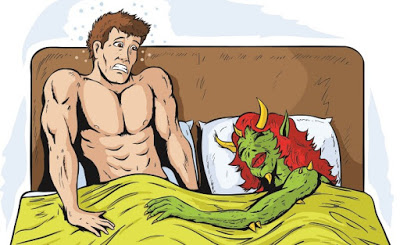 |
| Credits – Nigerianbestforum.com |
Tax avoidance and evasion
have become the culture of some individuals and businesses operating in
Nigeria.One of the latest indexes, “Paying Taxes 2015”, which compares tax
systems across the world, ranked Nigeria the 3rd worst globally in
tax compliance. The assessment is based on three major indicators; total tax
rate, number of payments and compliance time.
The survey reveals that it
takes the Nigerian taxpayer an average of 908 hours to comply, followed by
Bolivia about 1,025 hours, and the worst being Brazil- about 2,600 hours. Out
of the 189 economies, Nigeria –Africa’s largest economy by GDP size, ranks low
at 179 with total tax rate at 32.7 percent.
With the decline of oil
revenues and the uproar for alternative sources of revenue and poor global
ranking of Nigeria’s tax compliance, The Federal Inland Revenue Service
(“FIRS”) must embrace the Presumptive Income Tax Assessment (“PITA”) into the
Nigerian tax system.
What is the Presumptive
Income Tax Assessment?
Presumptive tax can be
traced to Milan, as early as the 17th century when the value of land was used
to estimate tax instead of the actual production from that land. This
stimulated increased production on the land because taxpayers wanted to
maximise production so as to beat the system.
Presumptive income
taxation is primarily used in economies where ‘hard-to-tax’ taxpayers comprise
the majority of the population and administrative resources are scarce. In
these societies, most taxpayers lack integrity or financial transparency that
allows for effective taxation by the relevant tax authority. The result is that
governments estimate or presume the appropriate income on which taxes should be
levied.
In Ehtisham Ahmad&
Nicholas Stern‘s “The theory & practice of Tax reforms in developing
countries” 276 (1991) defines Presumption Tax system as the use of indirect
means to ascertain tax liability which differs from the usual rules based on
the taxpayers account.
The tax payer captured
under this regime are the ones who are hard to assess because they earn low
incomes; they sell their goods and offer services largely for cash which makes
it impossible to apply withholding tax; they are compelled by non-tax reasons
to keep books of accounts and their number is too great which renders it
impossible to intensively scrutinize a reasonable fraction of them, they could
be mostly classified in the informal sector. This makes it easy for such a
tax-payer to conceal their incomes.
Presumptive tax system
must conform with the five major canons of a good tax system. These include;
certainty, Economy, convenience, fairness/equity and simplicity.
Many scholars try to
derive the legality of presumptive tax system from the provisions of Section 65
of the Companies Income Tax Act which empowers the Tax Authority to use the
best of its judgment to assess a company but there is no expressly stated
provisions for the system in any tax regulation or Act in Nigeria.
What do we stand to gain?
·
It simplifies tax administration and
improves compliance by small scale taxpayers.
·
It minimises tax evasion and avoidance.
·
It improves tax assessment.
·
It minimises the adverse effects of
progressive taxation.
Likely challenges?
·
Potential Taxpayers might not be willing to pay presumptive tax
because they think they pay many more other taxes and levies such as toll gate
fees, and other.
· Potential taxpayers “associations” need to
be involved in the process of coming up with tax levels for purpose than if the
tax rates are imposed on them.
·
The usual taxpayers may result to
presumptive tax because the costs of maintaining proper books of accounts from
which to base normal income tax would be very high and so presumptive taxation
is a cheaper option.
CONCLUSION
Presumptive taxation is undoubtedly a way of curbing
widespread tax avoidance without employing excessive government resources
because it addresses the concerns of both the taxpayer and the tax authority.
The chances of the system working in Nigeria depends on how the relevant tax
authorities apply it.

















